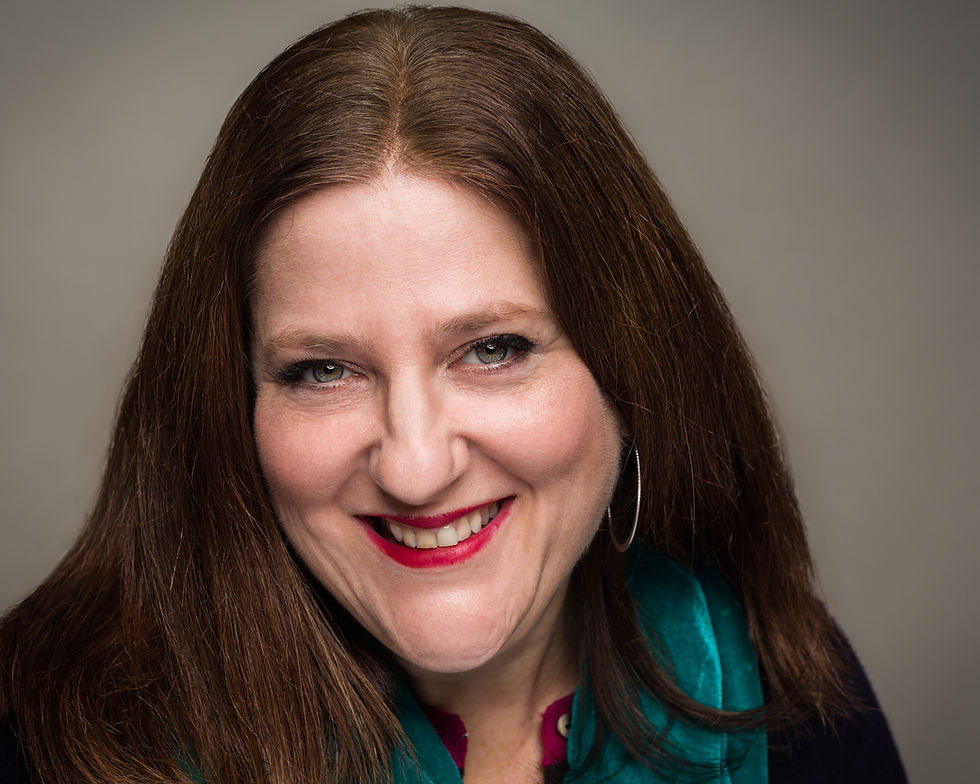Sermon From Ha'azinu - Friday, September 17, 2021
- Sep 20, 2021
- 4 min read
Imagine this: Today is your birthday. You’re sixteen years old (You’re a little gray for 16, but we’re imagining.) Today is your sixteenth birthday. A parent has let you know that you don’t have to go to school; they will treat you to a celebratory doughnut and you will go get your driver’s license. You have been waiting a long time for this. Maybe you are the youngest in your family or the youngest in your friend group. It feels like it has taken forever to get here.
You haven’t taken this whole experience lightly. You got your learner’s permit on the first day you were eligible. You have studied the guidebook so thoroughly that you know the rules that apply to trucks and hitching a boat or camper to your car. Now the day is here.
You’ve made sure your hair looks just right. You pass the vision test and the written test easily. The driving portion was a little nerve-wracking. The person testing you is a nervous type; you can see a vein bulging from his neck.
In the end, you pass. You go to get your picture taken, but they don’t give you a license. When you ask, they tell you that you’ve mastered all of the skills and passed all of the tests, that this should be enough. You don’t need to see the fruits of your efforts in order to know that you’ve achieved something.
This is exactly what happens to Moses in Ha’azinu, the portion we read from this evening [Friday, September 17]. Ok, exactly, minus the Secretary of State’s office. Moses did all of the work, he put in all of the effort and passed nearly all of the tests. And, in the end, he is given the opportunity to climb up a mountain, at 120 years old no less, to see the land he won’t be able to enter.
Moses had to be angry; I know I would be. But he doesn’t argue with or question God, as he did many times before. When God asked him to lead the people, he argued that his speech impediment would hold him back. When God struck Miriam with a white scaly infection, Moses plead for her health. When the daughters of Zelophechad said that they deserved to inherit in the same way that men did, Moses brought the question to God.
Like many of us, Moses deflects his anger. Instead of shouting at God about the unfairness of it all, he spends the majority of Ha’azinu reciting a poem to the people about all of the things they’ve done wrong. With God, he simply acquiesces. Many of us, knowing we were about to lose a job we put our heart and soul into might phone it in, or steal some pens, or change the passcodes, or take the Ws off of every keyboard. Not Moses. He does his job, as asked, until the very end.
And I don’t get it. I am not sure that, given the same circumstances, I would have acted with such grace. Even if Moses was ok with the outcome, I’m not. So I went looking for ideas that might make me feel better.
The first thing I thought about was other people who didn’t see the results of their life’s work. Vincent Van Gogh died, as he had lived most of his life, impoverished, having only sold one painting at the time of his death. Jonathan Larson, who won posthumous awards for his work on the 1996 Tony Award winning musical Rent, died the morning of the first off-Broadway performance. Of course, their work has brought meaning and enjoyment to millions of people. Beyond this, like Moses, they did the work that they were called to do. Doing the work you are destined to do is no small matter.
The second thing I did was turn to our biblical commentators. The Midrash suggests that when Moses is told: "Go up to this Mount Avarim" in Deuteronomy 32:49, he is meant to understand it as a physical and spiritual ascension. Even though he isn’t entering the land of Israel, he should not see it as a failure; he should instead see all that he accomplished and understand that going up the mountain and being permitted to see the land is a testament to how much he is valued.
Last, I thought about the poem by Rabbi Alvin Fine that is in our Yizkor service and is often read at funerals:
Birth is a beginning
And death a destination
And life is a journey:
From childhood to maturity
And youth to age;
From innocence to awareness
And ignorance to knowing;
From foolishness to discretion
And then perhaps to wisdom.
It goes on to speak about sickness and health, gratitude and compassion, fear, and faith. It ends in a way that I think represents Moses’ life…
From defeat to defeat to defeat
Until, not looking backwards or ahead,
We see that victory lies not
At some high point along the way
But in having made the journey
Step by step,
A sacred pilgrimage.
Birth is a beginning
And death a destination
And life is a journey.
The past ten days we have been on a journey. According to Jewish tradition, Yom Kippur mimics death; we don’t eat or drink and we and wear the white of a shroud. As we celebrate Shabbat tonight, given the chance to live another day, may we understand and use our gifts, interpret challenges as opportunities, and savor each moment of the journey.
----------

Michelle Drucker Friedman
Congregational Cantor





































Comments